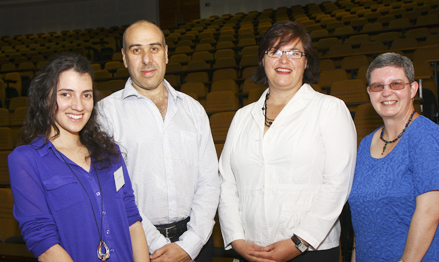Latest News Archive
Please select Category, Year, and then Month to display items
18 August 2021
|
Story Division of Student Affairs
![]()
The SRC Elections for the elective portfolios will be held from 12 to 15 October 2021 for the Bloemfontein, Qwaqwa and South Campuses.
Following the official announcement of the election schedule on 16 August 2021, the processes below are to unfold:
a. Candidate nominations for CSRC elective portfolios will open on 23 August, until 10 September 2021;
b. Ex-officio portfolio elections will take place on 11 October 2021;
c. Manifesto launches will take place via webinars from 15 September to 11 October 2021;
d. Declaration of final election results will be on 18 October 2021.
KDBS Consulting (Pty) Ltd has been appointed as the independent Chief Elections Administrator that is to oversee and manage the 2021 online SRC elections.
A website will be launched to provide updated information regarding all processes that are to unfold. A detailed schedule will also be made available via the official elections website that will be hosted by the service provider.
For any queries related to the elections, communication is to be sent via email to the Chief Election Administrator at
ufssrcelections@kdbs.co.za Communication to the election helpdesk may also be sent via direct call or on WhatsApp at
+27 0 61 452 4499.
Election specific notifications will be communicated via email and SMS.
Official elections will take place from 12-15 October 2021.

Workshop looks at new communities in the Free State and Gauteng
2013-11-08
 |
At the PARI workshop were, from the left: Laura Phillips, researcher at PARI, Prof Ivor Chipkin, CEO of PARI, Prof Corli Witthuhn, Vice-Rector: Research and Dr Tania Coetzee, Senior Lecturer in the Department of Political Studies and Governance.
Photo: Hannes Pieterse
08 November 2013 |
The university, in cooperation with the Public Affairs Research Institute (PARI), recently presented a workshop on new communities in the Free State and Gauteng. A variety of subjects, which explored the anthropology, sociology and history of the two provinces, were debated at the workshop. Discussions were held on the challenges faced by new communities, with the socio-economic and religious aspects of new communities coming under scrutiny. Environmental issues and responsibilities also came under fire and speakers agreed that individuals need to get involved in the community and that they should do something to address the housing and food shortage in South Africa.